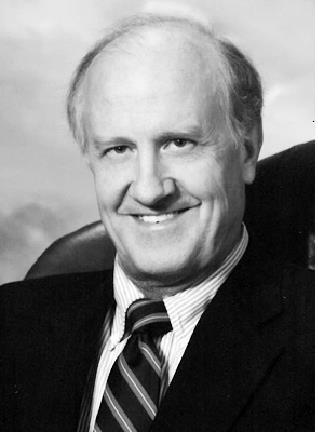 Longtime faculty member and department chair Fletcher Gabbard died in November 2017.
Longtime faculty member and department chair Fletcher Gabbard died in November 2017.
Fletcher was born in Jackson County, Kentucky in 1930 and obtained his B.S degree in physics from U.K. in 1951, after transferring from EKU. Among his favorite teachers at UK was Lewis "Bud" Cochran, who was then still a graduate student but would go on to become a faculty member, dean of the Graduate School and UK vice president, and who was instrumental in bringing the Van de Graaff accelerator to UK.
After graduating from UK, Fletcher served in the Army and worked in government laboratories before returning to school and obtaining his Ph.D. at Rice University, where he studied the transmutation of light nuclei under bombardment by neutrons, and where he met his wife, Anne.
Fletcher then joined the UK faculty and the experimental nuclear physics group, which included Marcus McEllistrem, Bernard Kern and, soon later, Jesse Weil and Jerry Brandenberger.
His research centered on detecting emitted neutrons to study nuclear reactions induced by charged-particle bombardment and the energy levels of the final nuclei; in particular, he had a long-standing interest in studying interactions relevant to stellar processes. He also worked on the development of better types of flat response neutron detectors.
In later work, he studied heavier nuclei with the goal of gaining better understanding of the nuclear optical potential. He retired from UK in 1989, although he continued teaching for a few years afterward.
Throughout his tenure at UK, Fletcher was active in University and departmental administration, including several terms in the University Senate, Undergraduate Council and Arts and Sciences Council. Most prominently, he was department chair for 14 years, first as acting chair from 1965-1967 before serving three terms as chair from 1972-1984.
Fletcher impressed upon the University the importance of diversifying the department’s research from its nuclear physics core to other areas of physics, and his tenure was a period of intensive faculty hiring in atomic physics, astrophysics and condensed matter physics, while maintaining the ”nuclear core” and even expanding it from low-energy, Van de Graaff-based nuclear physics, to intermediate energy and particle physics. (Among the faculty he brought to UK were Professors Pepper, MacAdam, Martin, and Harmin in atomic physics; Straley, Eklund, Subbaswamy, DeLong, and Brill, in condensed matter physics; Clark, Ferland, Elitzur, and Troland in astrophysics; and Kovash and Liu in nuclear physics.)
He nurtured new faculty through the ups and downs of working at UK, and, since (unlike him) none were native Kentuckians, he taught us how to correctly pronounce “Ah’m raht for a faht tonaht.” It was largely through his example that the research groups maintained their collegial and mutually helpful outlooks that have marked the department ever since.
After stepping down as Chair, Fletcher continued his service to the Department as Director of Undergraduate Studies. After his retirement, he moved back to Jackson County, where he and Anne built a beautiful home, including a bed and breakfast inn, and became active in local economic and community development. Among the many civic organizations on which he served for two decades were the Jackson County Development Association and the Jackson County Empowerment Committee.
Under Fletcher’s strong and far-sighted leadership, the department expanded its teaching and research faculties. Moreover, Fletcher’s warm and affable personality helped shape the department as a friendly, and supportive environment and home for generations of faculty and students.
